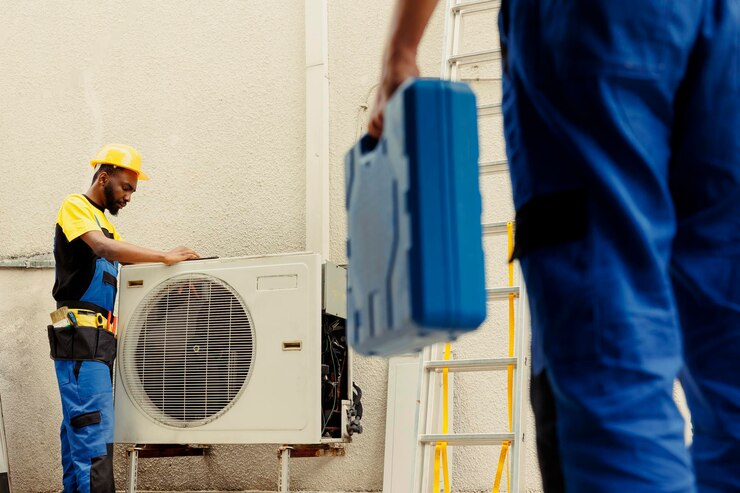A Comprehensive Guide to HVAC Systems to Maximize Efficiency and Comfort

The HVAC systems are vital in maintaining indoor comfort and air quality in residential, commercial, and industrial buildings. To be specific, the recent HVAC systems are enhanced in efficiency, friendly to the environment, and are capable of providing comfort as compared to the previous systems. This guide focuses on understanding the components and the functions of HVAC systems, as well as the importance of regular maintenance and the advantages of using these systems.
Understanding HVAC Systems
An HVAC system has some basic parts and subparts, all of which work together to produce the desired results. A part of heating systems are made by furnaces and heat pumps, impact boilers, supplying a home with warmth during chilly months. Ventilation implies the provision of adequate clean air and its circulation inside the building, the process of elimination of indoor air pollutants, as well as control of indoor humidity levels.
Heating encompasses furnaces and boilers that provide warmth to indoor environments during cold weather while cooling entails air residential air conditioning installation and chillers that aerate indoors during warm stations.
Types of HVAC Systems
There are many types of HVAC systems which can be classified according to the kind of environment they are designed to handle or the level of complexity they offer. Split systems work as individual indoor and outdoor units necessary for residential and commercial building facilities.
Integrated systems adopt trace for fossil fuel heating with electric heating, which also increases energy optimization. Duct-free systems are also very versatile and are ideal for structures that had no duct plumbing installed initially. Pumps feature integrated systems where all parts are located in a single package and often installed in small commercial facilities.
Maintenance Practices
Maintenance, it must be noted, plays an active role in increasing the lifespan and capacity of HVAC systems. Surveillance by specialists is recommended, and often, simple checks for abnormalities can be done proactively before the problem aggravates.
A good example often used to explain this idea relates to changing the filter of the air conditioning system, where it is stated that changing the filter often will help enhance the quality and efficiency of the air conditioning system. Large spaces like coils and ducts need to be cleaned to avoid blockages and to allow proper flow of air. There are also regular heating system maintenance activities that are done before the onset of winter peak periods to ensure peace of mind.
Benefits of Modern HVAC Systems
There are many advantages of present central HVAC systems, mainly energy efficiency, improved comfort, pro-ecological solutions, and possibilities of remote control. Sustainable innovations help to save energy and minimize expenditures on energy invoices.
Thus increasing the quality of air and regulating temperature leads to a comfortable indoor climate or environment. Bio-friendly refrigerants and energy-pro bundled parts reduce the environmentally damaging effects on the planet. Smart interfaces include compatibility with home automation systems for managing and adjusting via a remote control.







